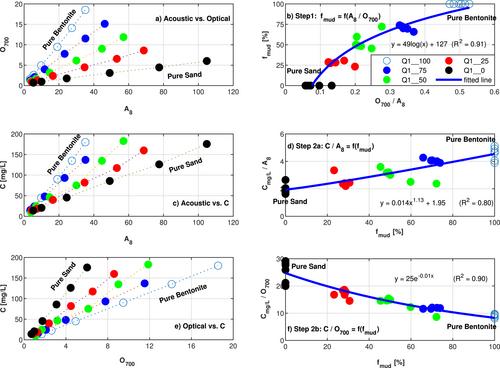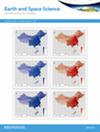Optical turbidity and acoustic sensors have been widely used in laboratory experiments and field studies to investigate suspended particulate matter concentration over the last four decades. Both methods face a serious challenge as laboratory and in-situ calibrations are usually required. Furthermore, in coastal and estuarine environments, the coexistence of mud and sand often results in multimodal particle size distributions, amplifying erroneous measurements. This paper proposes a new approach of combining a pair of optical turbidity-acoustic sensors to estimate the total concentration and sediment composition of a mud/sand mixture in an efficient way without an extensive calibration. More specifically, we first carried out a set of 54 bimodal size regime experiments to derive empirical functions of optical-acoustic signals, concentrations, and mud/sand fractions. The functionalities of these relationships were then tested and validated using more complex multimodal size regime experiments over 30 optical-acoustic pairs of 5 wavelengths (420, 532, 620, 700, 852 nm) and six frequencies (0.5, 1, 2, 4, 6, 8 MHz). In the range of our data, without prior knowledge of particle size distribution, combinations between optical wavelengths 620–700 nm and acoustic frequencies 4–6 MHz predict mud/sand fraction and total concentration with the variation <10% for the former and <15% for the later. The results also suggest that acoustic-acoustic signals could be combined to produce meaningful information regarding concentration and mud/sand fraction, while no useful knowledge could be extracted from a combination of optical-optical pairs. This approach therefore enables the robust estimation of suspended sediment concentration and composition, which is particularly practical in cases where calibration data is insufficient.




